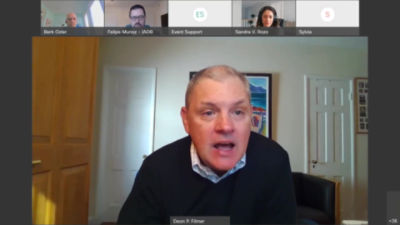Event Materials
Presentation ()
Paper:

Presentation ()
Paper:
The Global South hosts more than 85 percent of refugees, and its countries have implemented a vast diversity of policies concerning refugees¡¯ free mobility, access to safety nets, regular migratory status, and access to a job permit. How is the well-being of refugees affected in the Global South when offered the opportunity to fully integrate into their host communities¡ªthat is, be part of the formal sector, regularize their migratory status, and access safety nets?
The answer is not obvious because regularization is an economic decision that entails both costs and benefits. Developing countries have large informal sectors, and migrants are likely to already be participating in informal labor markets when faced with the decision to regularize. Consequently, the costs of regularization include the risk of being detected and the tax implications of being visible to public authorities, while the benefits include better access to social safety nets, peace of mind, and the opportunity to access better labor conditions in the formal labor market.
In this Policy Research Talk, ÐÓ°ÉÂÛ̳ Research Economist Sandra Rozo will discuss her with and on the causal effects of a regularization program offered by the Colombian government to nearly half a million Venezuelan refugees in 2018. Their analysis centers on understanding the effects of regularization on refugees¡¯ well-being broadly defined, including income, consumption, mental and physical health, and access to employment. The program¡¯s large and positive effects on the welfare of migrants underlines the substantial benefits of refugee formalization.
The monthly Policy Research Talks showcase the latest findings of the ÐÓ°ÉÂÛ̳¡¯s research department, challenge and contribute to the institution¡¯s intellectual climate, and re-examine conventional wisdom in current development theories and practice. These talks facilitate a dialogue between researchers and operational staff and inform ÐÓ°ÉÂÛ̳ operations both globally and within partner countries. Read More ?